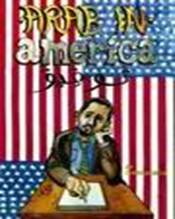题目内容
| ( A ) China news, Beijing, Dec. 28 – High oil prices make more Chinese public feel the pressure it brings on them. It is said that oil prices will continue to hover(徘徊) at a high level next year, the China Economic Times reported. | ( B ) An English Christmas evening party is to be held in the meeting hall of our school from 7:00 to 10:00 p. m. on Christmas Eve. Each group has to give at least two performances, such as singing English songs, giving English plays, telling jokes or stories in English and reading English poems. Please get everything ready and be present at the party on time. Thanks. |
| ( C ) Whether your interest is the language, the food or the culture of China in general, whether you wish to travel, live or study in China, "Travel in Chinese" has something for you. This series has a total of 100 lessons. It was on CCTV, China´s national TV station. Host: Mark Rowswell, also known as "大山" (Da Shan). | ( D ) Students need enough sports and activities to do physical exercises and relax. But in some schools they are not given enough time to do outside activities. It is harmful for students' growth. In fact, teachers should know how to attract the students' attention. It is necessary to do outside activities. When students feel tired and bored, they can't concentrate on studies. Some students are unhealthy because of little activities. |
| A.be the same as usual | B.be higher |
| C.be lower | D.have nothing to do with Chinese public |
| A.advice | B.sick leave | C.notice | D.invitation |
| A.people can learn Chinese on TV. |
| B.if foreign people want to stay in China, "Travel in Chinese" can help them a lot. |
| C.Da Shan is good at Chinese. |
| D.all of the above. |
| A.some students don’t have enough time to do outside activities. |
| B.students need enough sports and activities |
| C.teachers should know how to attract the students' attention. |
| D.students feel tired and bored, they can't concentrate on studies. |
小题1:B
小题2:C
小题3:D
小题4:B
小题1:细节理解题,由文中语句“It is said that oil prices will continue to hover(徘徊) at a high level next year,”可知。
小题2:语句理解题,通读全文可知。
小题3:语句理解题,通读全文可知。
小题4:语句理解题,通读全文可知。

练习册系列答案
 天天向上一本好卷系列答案
天天向上一本好卷系列答案 小学生10分钟应用题系列答案
小学生10分钟应用题系列答案
相关题目
